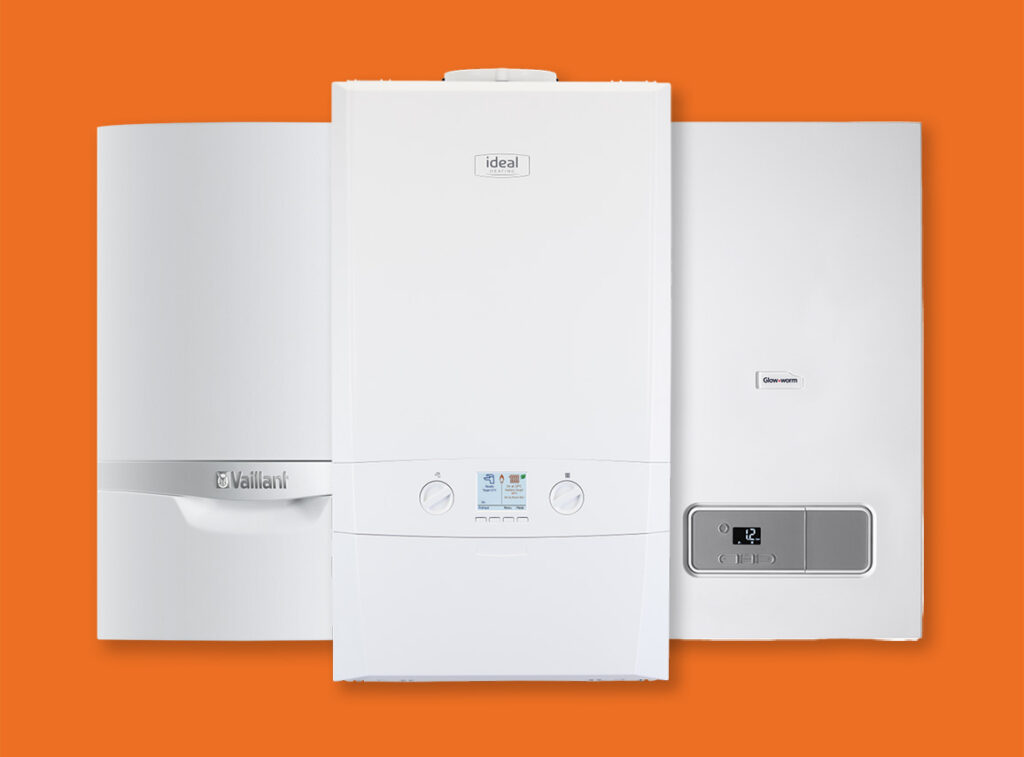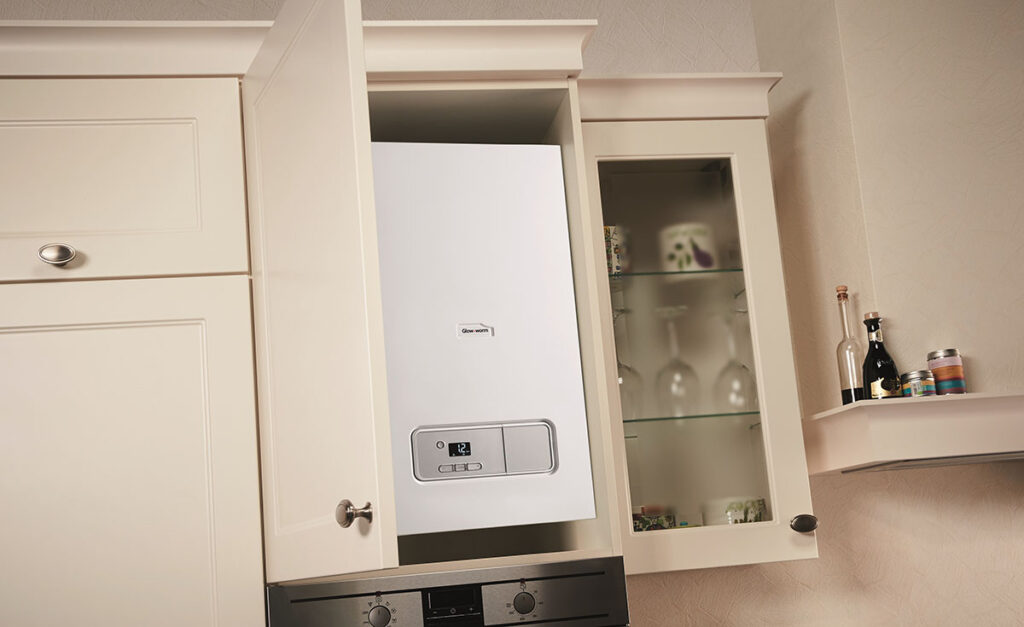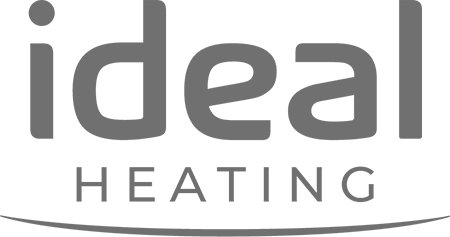
Have you recently purchased a new property? Perhaps you are completing renovations on an older home? If so, then a new boiler could be an essential consideration. The right boiler will keep your home warm through winter, ensure you achieve the right standards of efficiency and save you a fortune. In this article, we’ll explore some of the main types of boilers you can consider and factors to explore when selecting the right choice.
Below are the three main types of boiler systems for you to consider and their key features.
A combination boiler, or combi boiler, is an all-in-one unit that provides both heating and hot water directly from the mains, without the need for a separate hot water tank or cylinder. It operates using an integrated heat exchanger, enabling it to deliver hot water instantaneously whenever it’s needed. This efficiency not only means that combi boilers are capable of meeting your home’s heating and hot water demands on demand but also that they are more compact, saving valuable space within your home compared to traditional boiler systems that require additional storage for hot water.
Combi boilers are perfectly suited for smaller homes, allowing them to easily fit into a cupboard. Their design eliminates the need for both a hot water cylinder and a cold water storage tank, freeing up valuable space in the loft. This makes combi boilers an efficient and space-saving option for households with limited space.
A regular boiler (or heat only boiler or conventional boiler) is designed to provide heating to your home by warming water in its heat exchanger, then pumping this water to a separate storage tank. From there, hot water is distributed to radiators or taps as required. This system relies on a cold water tank, usually located in the loft or attic, to supply water to the boiler through gravity. This traditional setup separates the heating and hot water functions, with the boiler solely focused on heating and a separate hot water cylinder managing the supply of hot water.
For households frequently needing hot water from multiple sources simultaneously, a regular or condensing boiler is advisable. These boilers are connected to both a hot water cylinder and a cold water storage tank, catering efficiently to high hot water demand.
A system boiler integrates the boiler with a separate hot water cylinder to supply both heating and hot water, eliminating the need for a cold water tank. Unlike regular boilers, many components such as pumps and valves are built into the system boiler, streamlining the setup and reducing space requirements. Also known as closed-vent or sealed system boilers, they operate with a hot water cylinder but differ by not being “open vented,” meaning there’s no need for loft tanks, making them an evolved, more efficient version of conventional boilers.
A system boiler is ideal for homes with multiple bathrooms, providing a steady flow of hot water to several taps simultaneously without the need for a tank in the loft. This setup not only streamlines the water heating process but also optimises space by integrating essential components within the boiler unit and eliminating the need for separate cold water storage, making it a highly efficient choice for larger households.

There are lots of factors to consider when choosing the right boiler type for your home. You should think about your budget, the size of your home and the requirements of your family. You also need to think about the size of the boiler that is going to be right for you. Does your home have fantastic levels of insulation? If so, then it’s probably best to opt for a smaller boiler. A larger boiler will likely cause issues with inefficiency and mean that you are using energy you don’t need.
If you are struggling to make the right choice, then we can help. In just three steps, you’ll discover the perfect new boiler for your property. First, tell us about your home in no more than 30 seconds. Next, explore our fantastic range of boilers and calculate the cost. Once you’re happy, you can arrange a free, no obligation home survey so we can provide you with our expert advice and help you make an informed decision.
Regardless of the type of boiler you choose, it’s important to use the best boiler installer. You should always check reviews and explore whether there are any red flags. This could include boilers that developed issues shortly after installation or installations that weren’t completed on time. You should also get in touch with a boiler installer directly. Ask as many questions as you like so you feel comfortable with your choice.
Do you need more assistance choosing the right boiler? Get in touch with our expert team at Pro Heat Boilers today and we’ll be delighted to provide more help.








© Proheat Boilers Ltd. All rights reserved | T&Cs | Privacy Policy | Site by Space Five
*Proheat Boilers Ltd is an Introducer Appointed Representative of TradeHelp. Our firm reference number is 980193. TradeHelp is a trading style of TradeHelp Ltd, Marchwiel Centre, Bryn Lane, Wrexham Ind Est, LL13 9UT, registered in England (03712438), authorised and regulated by the Financial Conduct Authority (firm reference number 995929). TradeHelp are a credit broker, not a lender, and offer loans from a small panel of carefully selected lenders. TradeHelp do not offer financial advice and do not charge you for credit broking services. All loans are subject to status.